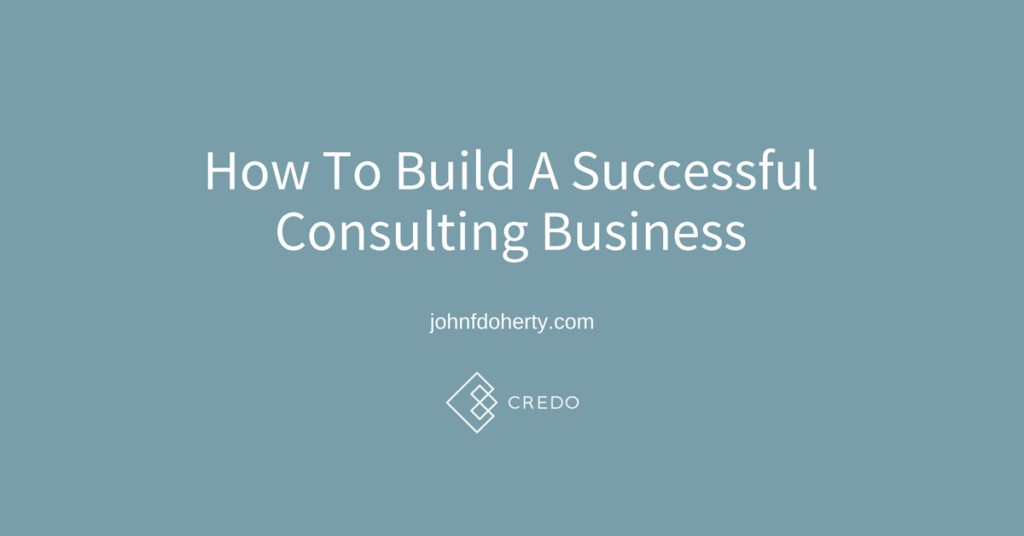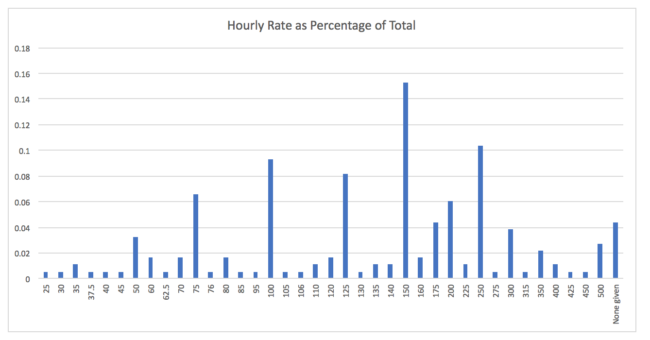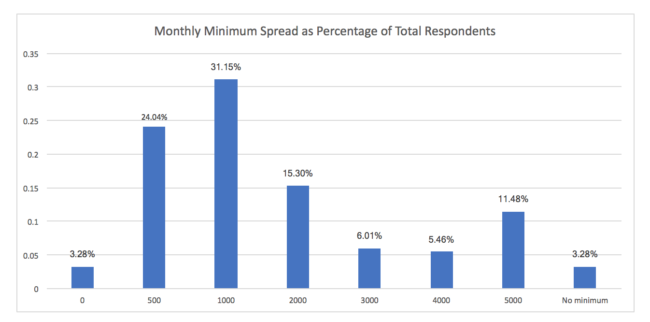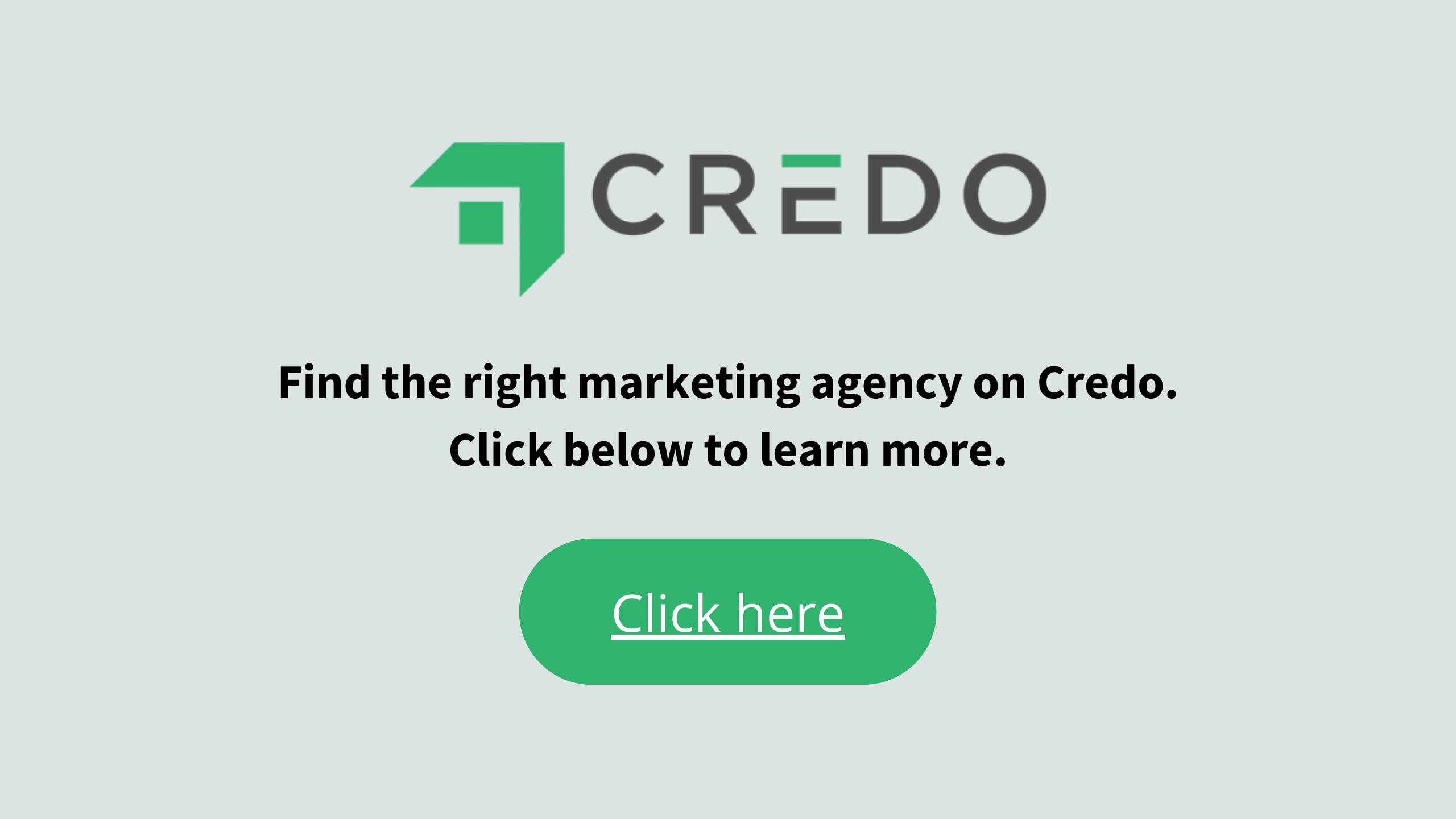Thinking about going on your own to build a consulting or agency business? Then read this first.
I will never forget September 29th, 2015. This was the day after I got laid off from my last fulltime job (19 months, where does the time go?) and I was laying in bed. I’m an ENTJ with a Type A personality (aka, I can never sit still) so even though I was unemployed and didn’t have to worry about money until the end of the year because of the severance I received, my mind was already spinning with what I was going to do next.
I knew I wanted to double down on my software business, but I have a background in SEO consulting so I figured it would be easy to spin up a few consulting clients to pay the bills while I worked the majority of my time developing the first version of the software needed to operate Credo like I wanted.

I was right. Over the next couple of months I picked up enough consulting to replace my San Francisco senior manager tech salary followed by taking a couple of months off consulting to get the next version of Credo out the door.
That experience coupled with the last 19 months running Credo and helping businesses find the right agency or consultant (we’re not quite there yet, but we’re getting there) has been formative in understanding how to grow a consulting or agency business. I’ve also learned a lot from observing friends who are building traditional agencies as well as those who are purposefully not doing that. I’ve written about that myself.
So how do you grow a consulting business?
Pricing
If you are going to survive as a freelancer or an agency, you first have to charge a fair hourly/project rate. There are many different ways to price your services.
In no particular order:
- Value-based (on your time and amount of potential revenue for the client)
- Project-based (time required times hourly rate plus a percentage higher for management)
- Hourly rate
At the end of 2016 I ran a digital marketing industry pricing survey and found the following spreads of pricing:


When you’re pricing your work, keep in mind your margins. The traditional wisdom for pricing work is to charge 3x what you pay an employee who is working on the project. So if the employee makes $60,000 per year, you effectively pay them $28 per hour, which means that you need to bill them out at approximately $86 per hour. Most agencies would round up to $100, and some agencies instead go to using a “blended” rate at which to bill all work. Your mileage may vary.
I always counsel agencies and consultants, especially new consultants, to not charge *by the hour* simply because this is a recipe for working too much and not making enough money. At the end of the day, billing by the hour misaligns incentives on both sides – the provider is incentivized to work as many hours as possible (often up to a cap) and the business is incentivized to have them work as few as possible.
Retainers, as we will talk about later, are always the best as long as you set the right expectations. You’re not committing to a certain number of hours, but rather to getting the job done right.
Leads/Potential Clients
To grow a services you business you of course need clients. Instead of talking about “leads”, let’s talk about potential clients and how they find you.
First, without a functional and up-to-date website, you’re going to have a bad time trying to close clients. I’ve spoken with numerous companies looking to hire an agency or consultant who did not get back to the consultant simply because the consultant did not have a website. I say again – if you are looking to get clients but you do not have a website you are going to have a bad time. Build yourself a website with a lead capture form and a simple “This is the work I do and this is who I do it for” section. And for the love, have a professional photo of yourself.
Second, before you really start trying to get “leads” for new clients you need to figure out what you want to specifically offer and who you want to offer it *to*. Do you do SEO or both SEO and Facebook Ads? What about PPC? Do you do it for ecommerce stores, small mom and pop physical businesses, or 1M+ page marketplaces? Why did you pick that niche, and what’s your experience in it?
Once you have a decent net set online to attract clients (different sites, your own website, social media properties, etc), then you need to do two things:
- Continue to build your presence online as an authority in the space, because long term audience wins.
- Work on your sales pitch and how you speak with potential clients about what you offer. Better to get 5 potential projects and close 3 than to get 10 and close 1.
That’s it. Build your audience and visibility, hone your specific offering (what and who), and then work to close more of the projects that are coming to you (and say no to the wrong ones).
Processes
Next, to build a successful consultancy or agency you need to get in place operating processes that allow your team to do their best work while also not being overrun by needy clients who always have access to them.
Most agencies will go the route of having dedicated account managers, people who may have subject-matter expertise and knowledge (or who pick it up as they go) but are not actually doing the work. Their job is to communicate with clients, do weekly reporting and questions calls, deliver and explain work to clients, and more. They often have 15-20 clients they are managing (sometimes more), and to be honest I often don’t see the purpose of them.
Instead of going this route (I believe every consultant or analyst should have client-facing skills, by the way), I recommend that you put better processes in place for communicating with clients on a consistent basis. When I worked for Distilled, I had a maximum of three clients (all with good size budgets) and I would do a weekly 30 minute call with each of them to talk about what had been done and what we were doing next. As a solo consultant now, I do this with my existing clients still.
You don’t have to do a weekly call. Discuss with your clients how often they want/need communication and which format makes the most sense for them. I do recommend that you speak with them on the phone at least monthly as this helps to retain work, but otherwise just make sure the lines of communication are open but not forced.
Communication, of course, is not the only process you need to figure out with clients. Within your agency or consultancy, all of these processes have to be worked out as well:
- Outlining deliverables;
- Scoping work for new projects;
- Actually doing the work;
- Invoicing clients;
- Reporting;
- Consulting time required (that needs to be built into project costs).
There are more too, but those get you started and then you can see the cracks.
Retaining Work
The number one way to build a sustainable consultancy or agency is to retain clients who pay you a fair wage. Point blank, this is how you build a business.
Why? Because if you can retain clients then you are not just adding more water to a leaky bucket. The reality about leaks as well is that the more water you pour into them, the bigger the hole gets and the more water you waste.
Retaining work can be an interesting beast, to be sure. Most clients will stay with you for 12-18 months no problem, and sometimes longer. If you offer different services as you go or they need new things (or are a bigger company with a lot going on with their site), you can also always increase their retainer over time.
There’s a dark side to large retainers as well. I’ve seen too many consultants and agencies be very top-heavy with just one client, and when that client then eventually stops working with them for whatever reason (through fault or no fault on the agency/consultant’s side) they are in a world of hurt for revenue. I see it happen time and time again.
This is the challenge of retained consulting – retaining work and having a few clients paying you enough that you can cover your costs if one decides to leave you or is late on payment (this happens all too often as well).
My advice is to have a few clients at any one time, normally around three if they are big retainers. Then also be producing content/Twittering/speaking and creating your net of traffic and audience so that when you tell people you are taking on clients they will jump at the opportunity to work with you.
What did I miss? Leave your comments below.

So timely, John. Appreciate the solid advice. How do you go about pitching potential clients and projecting expectations when you can’t see their analytics and other crucial data?
I love this question. One answer is “Ask them for access before you pitch them.” The other way is to ask them how their traffic has grown over the last few years and why they contacted you. Sometimes they’ll say “Oh we don’t have Google Analytics” or “Oh we don’t have Search Console”, which is an in right there.
Much appreciated, sir! I guess if they’re serious about getting help they won’t mind someone taking a look at their analytics. Thanks again, John.
Exactly 🙂
And if they won’t share it, do you really want them as a client?
How do you pitch to clients when you are new in the field or you are a start up?
Well said, some clients can last longer than that depending on what services you provide. If you show them results and increase of customers there is no reason someone will leave your agency. Try call tracking, show them how many phone calls you are responsible for, if you show what you bring in even if they are breaking even they may still keep you. 🙂 my 2 cents.
John A,
Contractor Marketing Specialist
Great post John, but i wish you would go into more detail about how to actually get clients. Especially when you don’t have a lot of “outside” experience. For example, i have worked at agencies as an SEO but i never did freelance or consult work.
Was 2500 words on it not good enough for you? http://www.johnfdoherty.com/clients/
It’s nice to find a true consulting business who is being 100% honest and open about consulting. Although I disagree with some points, overall, your article threw some of the reality that happens behind the scenes. Quick suggestion: A simple update on this piece involving some real case scenarios of the problems you mentioned (late on payment etc) would be awesome to read, and I bet your audience would like it too. It’s always fun to read any “consultant adventures”.
Have a nice weekend John,
Take care.